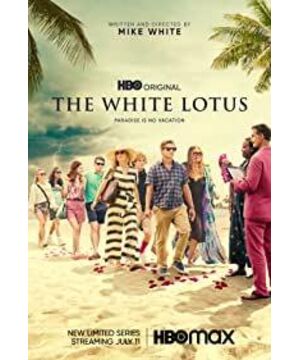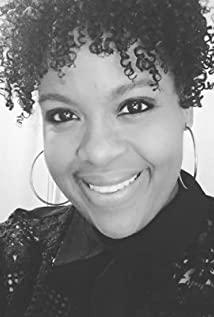When the strong woman's mother Nicole collapsed in front of her husband and pretended to be okay in front of her daughter Olivia, just like the real estate manager woman played by Annette Bening in "American Beauty", she slapped herself and smiled and continued the business;
When white people watch Native Hawaiian songs and dances like watching animals juggling, it is reminiscent of white people watching African native dances in Antonioni's "Eclipse";
When Paula, who is clearly a person of color, complains to the sympathetic Aboriginal man that "they have so much money they don't even know how to spend it", the hatred is reminiscent of the sudden outburst of hatred in "Parasite" - although this The family looks good to Paula, just as the rich family in Parasite looks good to the poor family.
And "White Lotus Resort" can combine so many kinds and levels of contradictions into a holiday story of a resort, the ambition is indeed beyond the ordinary American dramas that pursue "brain burning" and "cool".
The three main characters of "White Lotus Resort" (a strong woman's family of four, the beautiful Rachel and the Ma Bao male Shane and his wife, and the lonely lady) are all rich and high society. And their mental anguish doesn't seem to have diminished slightly. Due to space limitations, this article will only take the first two groups of characters as examples to illustrate the social criticism of the play.
The pain of the first group of characters, the CEO's family of four can be simply summed up as emptiness.
Whether it is mother Nicole, who respects her husband like "ice", or a father who is in constant panic because of knowing his father's sexual orientation and death, or a daughter who is no different from China's "Houlang", the source of his pain can be traced back to Empty word.
Take daughter Olivia, for example. We can almost imagine her life from the cradle to the grave—a top student who blossomed on campus in academics, literature and art, and sports, an Ivy League graduate, married to a rich second-generation man with a life similar to her, and then continued to reproduce like this life. But such an easy life is too boring. Girls have to do something to stand out from the rest, like those rich second-generation young ladies who are obsessed with debuting.
One detail in the film is very interesting. Olivia lazily reads Fanon's "The Wretched of the Earth" by the pool. This is a masterpiece condensed from the pain of Fanon on the eve of his untimely death (due to illness at the age of 36) and his experience in the blood and fire of Algeria's anti-colonial struggle.
In "The Suffering of the World", although not explicitly, Fanon slaps "civilized" philosophers including Hannah Arendt in the face, and proposes that there is only struggle, only to destroy as many "them" as possible (the colonizers), so that the voice of "us" (the colonized) may be heard and the figure of "us" may be seen.
In the face of this sharp and radical idea of struggle, even Mandela's anti-colonial practices seem conservative.
Such a book of struggle, held in her hands, seemed to be a decoration.
It's not so much the hypocrisy of the middle class as it is that they are powerless. Their pain and emptiness are real. As the family's dad said when he commented on colonial atrocities, yeah those are all bad things, but what can we do? "This is history, this is America" - just "Lie down and accept it!"
The past is full of sin and cannot be changed, and the future is still elusive to those who have the resources. Everyone needs to continue to accelerate with the social machine to avoid being thrown off the track. This is the capital of the mighty progress of globalization. The "now" of socialist society.
One of the details in the film is very interesting: the mother asks the boy Quinn, since you don't believe in capitalism or socialism, what do you believe in, cynicism? The child said it doesn't matter what you believe.
Because no matter what you believe, people always do wrong. This is the root of emptiness - the overthrow of all old values. A new value called "Freedom" now occupies the top of the temple.
But for the poor, without the resources to practice freedom, it is false freedom; for the rich, when they realize that "freedom" is the only value left, "freedom" becomes empty. They have to do something to practice this freedom, to prove their uniqueness, but only to be identical consumers.
The second group of characters, Rachel, played by the impressive "Jade" Daddario in "Deadly Woman", interprets this "hollow" from another angle.
In the sixth episode of her conflict with her husband, when she said she didn't want to be a plus-one anymore, the husband asked in amazement, do you blame me for not being successful enough? This is one of the most terrifying social realities of our time—the gulf between rich and poor, between success and failure, between wisdom and stupidity, widens with a terrifying acceleration, and those left behind do not know how blame.
Blame yourself? It's not that you don't work hard. Blame someone else? Blaming others is not in line with the laws of this society - we are taught that the progress of society provides people with unprecedented equality of opportunity, after which the bitter wine of individual failure can only be drank by the individual.
An interesting setting is that Rachel is not very smart. She writes crappy news. She considered leaving journalism to work in an NGO to "make a difference in the world". But the audience should be able to see that she may not be able to do well if she changes positions. Like most people, she is confused and drifting.
This leads directly to the question: how can an unintelligent person live with dignity in contemporary times? The teaching of our time is that the harder you work, the more you succeed. Unsuccessful people are naturally labeled as lazy. But this is clearly not the case.
Harvard Professor Michael Sandel (known in China for his "Justice: What to Do" series of public lectures) pointedly concluded in his new book (The Tyranny of Merit) last year that in a world where all values are translated into markets In a society where values are measured, even the welfare system can only distribute money, but not dignity.
Such a society "produces hubris and anxiety among the winners and humiliation and resentment among the losers." Anxiety is the psychotic symptom of our age, which is sweeping the globe. one. And shame and hatred are directly linked to the proliferation of populism around the world.
"White Lotus Resort" is like a sharp pen, vividly depicting the sinking of people in a highly developed capitalist society - not only the sinking into drugs, indulgence and extravagance, but the complete collapse of the spiritual world. Such a person is also the "last man" in Nietzsche's writings.
And such people have no hope and way of redemption. "White Lotus Resort" is only responsible for questions, not for answers. At the end of the episode, some people are drunk and die, some are exhausted, some are speeding, some are fleeing, but maybe they will end up the same way in the end——
Many commentators believe that Quinn's sailing at the end is to enlighten people's self-redemption and revive "natural" humanity. But the author pessimistically believes that although the gesture of turning around and fleeing is beautiful, at the end of the escape, it may be more likely that there will be a scene painted with blue horizon in "The Truman World" - people keep fleeing, and then touching To this level point out the bone-chilling false curtain of the reality in which it lives.
It's just that in "The Truman World", there is an exit marked "exit" at the end of the screen. In reality, even this exit is delusional.
(First issue of "Muwei'er" WeChat public account)
View more about The White Lotus reviews











